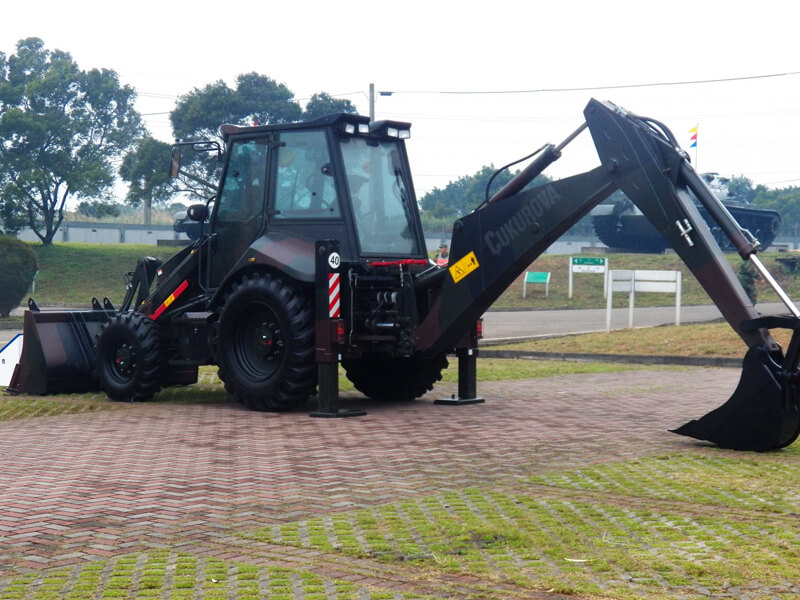
Hoisting 101: Everything You Need to Know About This License
When you’re working in crane operations, construction, landscaping, utilities, warehouse operation or even certain maintenance jobs, chances are you’ve heard someone mention a hoisting license. But what exactly is it? Who needs one? And why is it so important to understand the requirements before stepping foot on the job site?
This guide will walk you through the essentials—from who needs a hoisting license, to what’s on the exam, how long it lasts, and whether you can get it online. Let’s dig in.
What is a Hoisting License?
A hoisting license is a Massachusetts state-issued credential that allows you to legally operate cranes and heavy machinery and equipment used to lift, move, or excavate materials and many other pieces of machinery. Think of it as a driver’s license—but for big equipment like excavators, forklifts, cranes, backhoes and highway and DPW equipment.
The license is designed to ensure safety. Heavy machinery can be dangerous if operated incorrectly, so states (like Massachusetts, one of the strictest) require that operators demonstrate knowledge and competency before taking control of the equipment.
Who Needs a Hoisting License?
This is where many people get tripped up—they assume hoisting licenses are just for crane operators or heavy construction crews. In reality, a wide range of professions and trades need this certification.
In the state of Massachusetts there are 4 Classes:
Class 1: Hoisting
1A: All hoisting equipment (except electric and air powered) including clutch machines, derricks, guy derricks, stiff legs, Chicago booms, gin poles, lattice booms, and equipment described by 1B.
1B: Equipment with telescoping booms with or without wire ropes, and equipment described by 1C.
1C: Equipment hydraulic telescoping booms without wire ropes and equipment described by 1D.
1D: General industrial warehouse Fork Lift equipment primarily used in indoor facilities
Class 2: Excavating
2A: Crawler and rubber-tired excavators, backhoes and loaders, and equipment described by 2B
2B: Backhoes and front-end loaders, and equipment described by 2C
2C: Front-end loaders and equipment described by 2D
2D: Compact Hoisting Machinery with a gross vehicle weight not exceeding 10,000 pounds, excluding Class 1, Class 3, and Class 4 Hoisting Machinery.
Class 3: Electric and pneumatic
3A: Electric and Pneumatic hoisting equipment.
Class 4: Specialty
4B: Drill Rigs
4C: Pipeline Side booms
4D: Concrete Pumps
4E: Catch Basin Cleaners
4F: Sign-Hangers
4G: Specialty Side Boom Mowers
Other classes
- HA Hoisting Apprentice: Must be Registered with the Department of Labor and Workforce Development
- HEML Municipal Limited: For use by operators employed by a municipal public works department, solely within the scope of their municipal employment, to operate hoisting equipment under the following restrictions: 1C, 2B, and 4G.
Here are some of the most common:
- Construction workers using excavators, backhoes, front-end loaders, skid steers, or forklifts.
- Utility workers handling bucket trucks, derricks, or trenching equipment.
- Landscapers operating mini-excavators or skid steers for grading and tree removal.
- Road and highway crews operating specific specialty hoisting equipment.
- Masons and concrete workers using forklifts or lifts to move materials.
- Roofers who may use lifts to move supplies to upper levels.
- Electricians and plumbers working with lifts or excavation machinery during installations.
- Warehouse workers who use forklifts regularly.
In other words, it’s not just crane operators—if your trade involves moving earth, lifting materials, or operating powered equipment that hoists or digs, chances are you need a hoisting license.
What’s on the Hoisting License Exam?
The exam is a written test with 40 multiple-choice questions. It’s designed to measure your knowledge of:
Safe operation procedures for hoisting equipment
State laws and regulations around equipment use
Basic safety standards like OSHA requirements
Maintenance and inspection practices for machines
Site safety awareness to prevent accidents
Hoisting hand signal
520 CMR 6.00
520 CMR 14.00
146 MGL c. 146
OSHA 1910
OSHA 1926
Hydraulic boom with cables
Hydraulic boom without cables
Rigging
Forklift Operations and Safety
Powered Industrial Trucks
Rough Terrain Forklifts
The good news? The test isn’t meant to trick you. It’s focused on real-world knowledge you’ll actually use on the job. With proper preparation and study, most people pass on their first try.
How Long is the License Valid?
A hoisting license is typically valid for two years. After that, you’ll need to renew it.
Renewal is usually straightforward—you’ll either retake an updated exam or complete a Continuing Education (CE) course that refreshes your knowledge and ensures you’re up to date on current safety standards and regulations.
This requirement makes sense: equipment, safety rules, and jobsite hazards evolve over time. A continuing education course keeps you sharp and ensures everyone on the site is working to the latest safety expectations.
Can You Get a Hoisting License Online?
This is one of the most common questions. The short answer is: You can complete the training and exam prep online as well as submitting the application, but the actual test requires you to go in-person to a MA OPSI designated location.
What you need:
Anyone who wishes to operate hoisting equipment (including derricks, cableways, machinery used for discharging cargoes, and temporary elevator cars used on excavation work or used for hoisting building material) must obtain a Hoisting Engineer License. Licenses must be renewed every 2 years.
Hoisting operators must be 18 years of age, complete an application, and successfully pass an examination that covers all working parts of the hoisting machinery, safety practices, hand signals, and inspection procedures.
If you aren’t sure which license to apply for, see Guide to engineering restrictions.
What you need to apply:
- You will need the following items to apply for a hoisting license and sit for an exam:
- A copy of a valid driver’s license, driver’s license learner’s permit, or Massachusetts ID from the Registry of Motor Vehicles (RMV)
- A copy of a DOT Medical Certificate, Massachusetts Intrastate Medical Waiver, or ANSI/ASME B30.5 Medial Qualifications Form. For more information, view Medical Requirements for Hoisting Engineer License.
- Either authorization from the Massachusetts RMV to have your driver’s license photo with the Office of Public Safety and Inspections (OPSI) or a 2-inch by 2-inch photo that meets these guidelines.
Applicants applying for an Apprentice License must also submit an ID card from the Division of Apprentice Standards (DAS).
To prepare for an exam, you must know all relevant statutes, regulations, and instructions provided by the manufacturer’s operating manuals. For more information, view Education Requirements for Hoisting Engineer License.
If you are a military veteran or service member, you may qualify for benefits under the VALOR Act, including fee waivers, expedited processing, and more. For more information, view Licensing Benefits for Active Military, Spouses & Veterans.
Fees
There is a nonrefundable application processing fee of $75. Payment can be made online during the application process. If you sent an application by mail, payment must be enclosed in the form of a check or money order made out to the “Commonwealth of Massachusetts”.
Why Hoisting Licenses Matter More Than You Think
It may seem like just another piece of paperwork, but your hoisting license is much more than that. It’s:
- A safety guarantee – showing employers and clients you’re trained and qualified.
- A legal requirement – avoiding fines, penalties, or shutdowns for operating equipment without a license.
- A career advantage – licensed workers are more employable and often earn higher pay.
- A protection for your business – keeping your insurance valid and protecting you from liability.
What Can Disqualify You from Getting a Hoisting License?
Not everyone who applies is automatically approved. Here are some of the most common reasons someone may be disqualified or denied:
- Incomplete or inaccurate applications – Leaving out details or misrepresenting your background can cause delays or denials.
- Serious criminal history – Certain felony convictions, especially those related to fraud, violence, or misuse of equipment, may disqualify applicants.
- Safety violations – If you have a documented history of unsafe operation of machinery, it could be grounds for rejection.
- Failed medical clearance – In some cases, health issues that make it unsafe to operate heavy equipment may disqualify an applicant.
- Unpaid Taxes.
That said, each application is reviewed individually. Minor mistakes or small past issues don’t necessarily mean you can’t earn a license.
TL;DR:
In short, it’s not just a license—it’s a ticket to safer jobs, more opportunities, and greater credibility in your field.
Getting your hoisting license may sound intimidating at first, but once you break it down, it’s straightforward. If you operate heavy equipment in any trade—construction, landscaping, electrical, plumbing, or beyond—you likely need one.
The exam is 40 questions, it’s valid for two years, and renewal can often be handled online through CE courses. While certain disqualifications exist, most applicants who prepare and apply honestly have no trouble getting licensed.
If you’re serious about your trade and want to protect yourself, your crew, and your livelihood, investing the time to earn (and maintain) your hoisting license is one of the smartest steps you can take.


